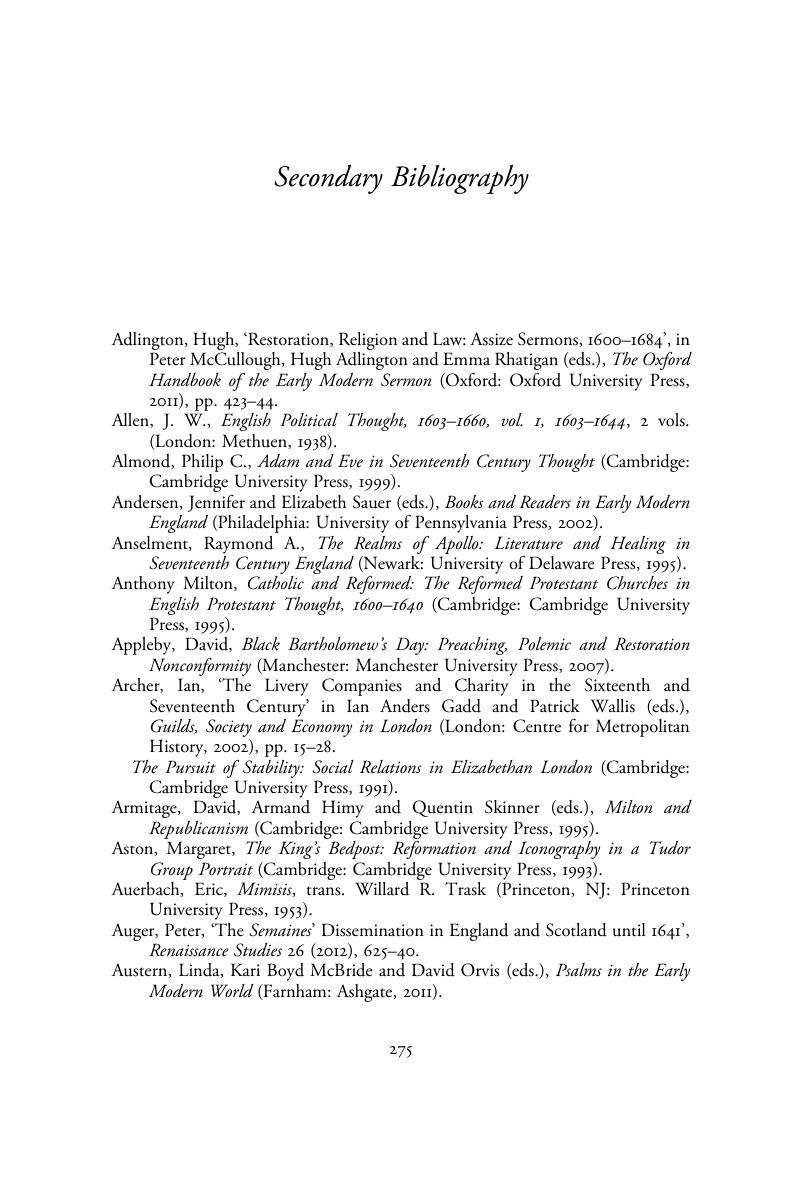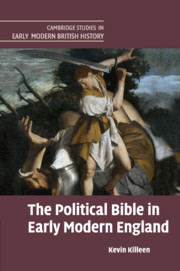Book contents
- The Political Bible in Early Modern England
- Cambridge Studies in Early Modern British History
- The Political Bible in Early Modern England
- Copyright page
- Dedication
- Contents
- Acknowledgements
- Abbreviations
- Chapter 1 Introduction: the political Bible
- Chapter 2 Early modern hermeneutics and the Old Testament
- Chapter 3 The sermon, the listener and enemy theory in the Thirty Years’ War
- Chapter 4 Hezekiah, the politics of municipal plague and the London poor
- Chapter 5 Constitution and resistance: the language of civil war political thought
- Chapter 6 Dividing the kingdom: Rehoboam and Jeroboam
- Chapter 7 Hanging up kings: regicide and political memory
- Chapter 8 Preaching on the ramparts: Hezekiah at war
- Chapter 9 How Jezebel became sexy: Ahab, Naboth’s land and Jezebelian hermeneutics
- Chapter 10 Conclusion
- Appendix: chronology of biblical kings
- Primary Bibliography
- Secondary Bibliography
- Index
- References
Secondary Bibliography
Published online by Cambridge University Press: 20 January 2017
- The Political Bible in Early Modern England
- Cambridge Studies in Early Modern British History
- The Political Bible in Early Modern England
- Copyright page
- Dedication
- Contents
- Acknowledgements
- Abbreviations
- Chapter 1 Introduction: the political Bible
- Chapter 2 Early modern hermeneutics and the Old Testament
- Chapter 3 The sermon, the listener and enemy theory in the Thirty Years’ War
- Chapter 4 Hezekiah, the politics of municipal plague and the London poor
- Chapter 5 Constitution and resistance: the language of civil war political thought
- Chapter 6 Dividing the kingdom: Rehoboam and Jeroboam
- Chapter 7 Hanging up kings: regicide and political memory
- Chapter 8 Preaching on the ramparts: Hezekiah at war
- Chapter 9 How Jezebel became sexy: Ahab, Naboth’s land and Jezebelian hermeneutics
- Chapter 10 Conclusion
- Appendix: chronology of biblical kings
- Primary Bibliography
- Secondary Bibliography
- Index
- References
Summary

- Type
- Chapter
- Information
- The Political Bible in Early Modern England , pp. 275 - 302Publisher: Cambridge University PressPrint publication year: 2016



